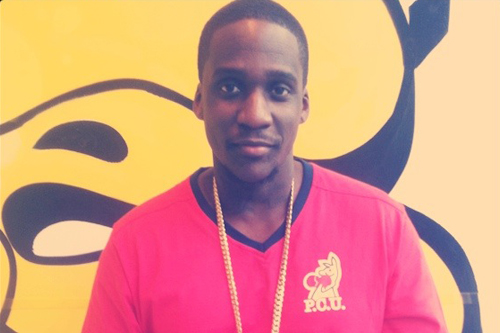Photo by: Virgil Solis (Click for full image)
Interview by:
Alexander “RTC” Fruchter
The Clipse ushered in a new style of Hip Hop with the release of their 2002 major label debut, Lord Willin’. Backed by the exciting and buzzing production team of The Neptunes, Pusha-T and Malice provided a distinct and previously unheard glance into an underbelly of the drug world. Dubbed “Coke Rap”, the Clipse occupied a special place within Hip Hop, applauded by many fans and critics for both staying true to the streets, yet also popping up in “intellectual-rap circles”, becoming somewhat media darlings for bringing lyricism to drug-dealer raps, and pushing boundaries sonically. At a time when Hip Hop was becoming dumber, the Clipse found new and smarter ways to address some of the same topics that were at the forefront of Hip Hop’s laundry list of criticisms. The difference with the Clipse though was that it wasn’t just music, and it caught up with them when their former manager, Anthony Gonzalez, pleaded guilty to drug trafficking charges in 2009, and was sentenced to 30-plus years in prison.
Since then, both members of The Clipse have undergone some changes. Pusha-T linked up with Kanye West’s G.O.O.D. Music, experimenting with sounds as well as a new wardrobe thanks to the Chicago-born producer and icon. For Malice, the changes have come outside of the booth, with a profound spiritual experience that left him reeling and effectively changed his life forever. “When I went through my experience, I wasn’t thinking about music,’ he tells me during a rainy afternoon at The PHLI Store on Chicago’s Southside. “I had to put it into the book and just share it once and for all.”
That book is Wretched, Pitiful, Poor, Blind, and Naked, which was released in the spring of 2011. It tells the story of Malice’s deep religious experience, one that led to a new perspective on life, music, and even a new name. And while sharing the story was at times daunting, it was something that had to be done. Malice compares it to a mother-to-be going into labor, saying, “It was much like a woman giving birth, cause you know what you’re about to do… Am I really about to put this out there to the whole world and a world that has known me for 10 years or better in a different way? So to break through with a new meaning, a new identity, it was a burden because I didn’t know how people would take it, but I knew I had to do it. I didn’t care if I came under all the criticism or scrutiny in the world, this is something I had to do and I knew I was going to do it. It was like torment, ‘oh my god, I’m about to tell this story, I’m about to tell this… But I got to do it.”
But what about those that know him as Malice? And what about that deep Clipse catalog, one rooted in tales of selling drugs and the riches that come from such endeavors? In the video clip below, Malice talks about changing his rap-moniker and becoming known for something else, as well as his feelings on the music that made him famous.
Video by:
Tony Shane
Filmed at The PHLI Store

